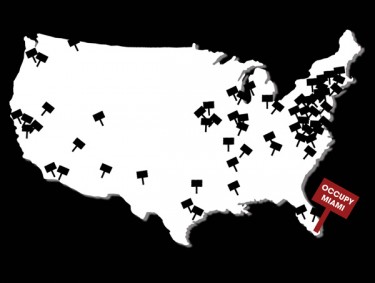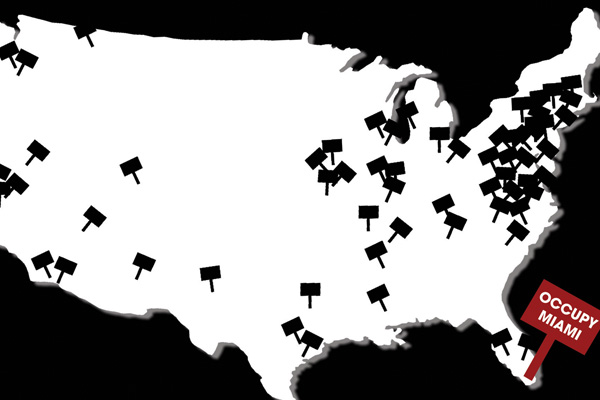
The national unemployment rate is 9.1 percent, 46.2 million Americans are living below the official poverty line and the median household income has fallen 6.7 percent to $49,909.
As a result, demonstrations speaking out against government corruption and the current state of the economy have sprouted across the United States and have now reached Miami.
On Saturday, protesters with Occupy Miami will unite at the Torch of Friendship at Bayfront Park to express their grievances about the direction of the nation. The group, which has more than 7,000 likes on Facebook, has posted numerous videos on YouTube to promote the protest.
Occupy Wall Street, the protest that is currently being held in New York City, inspired the Miami movement.
Similar movements have been sweeping the nation, with other Florida cities like Fort Lauderdale and Tampa starting local “Occupy” groups.
The Occupy movement does not have a defining feature. Instead, it protests a number of social issues that range from high unemployment to tax breaks for the wealthy.
“It’s a class issue,” said senior Robert Hupf, a supporter of the movement. “There are people that have an income much greater than [the average] American. While they get tax breaks and benefits, the rest of the 99 percent are fighting for jobs. We’re bearing the burden.”
Because of the varied issues protesters are championing, the movement has a diverse following.
The protesters “range from the unemployed to leftist intellectuals,” said sophomore David Moyer. Moyer plans to attend the Saturday rally with a group of students from the university.
Some of the protesters feel the movement will make great political strides. The nature of the Occupy protests have been compared to the early stages of the 2009 Tea Party movement. “I see a new formation of the left wing,” said Moyer. “This is an interesting political change I will be taking part in.”
Other supporters see it as a way to make a difference outside the political realm. “If we are going to challenge [the system], we can’t rely on the institutions of power. They’re not getting anywhere. If we’re going to be heard, we need to get the voice out,” said Hupf.
However, others feel that the protesters are fighting the wrong institutions. “I don’t think it will achieve anything,” said junior Andy Tomonto. “I don’t think Wall Street is the bane of the United States. They’re the ones we have to bolster to get people working again. [These protesters] use their phones and [drink] their Starbucks.”
Though the demands of these protestors is not so clear, it is evident that there is a general disapproval of current political and economic policies.
“If you look around the world, Occupy Wall Street is not unique,” said Louise Davidson-Schmich, director of undergraduate studies in the political science department. “Over the summer we saw rioting, looting and protests in Greece, Great Britain and Spain. It’s not a coincidence that all these things are happening in post-industrial democracies at the same time. Occupy Miami or Occupy Wall Street is part of something bigger.”






